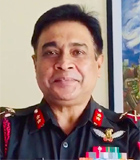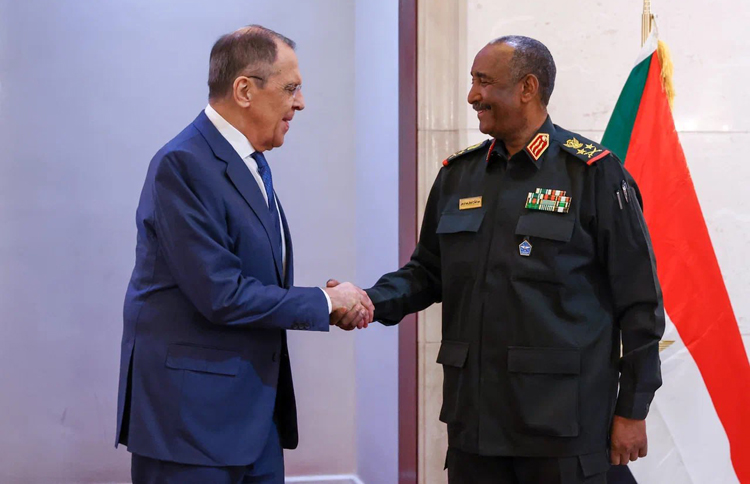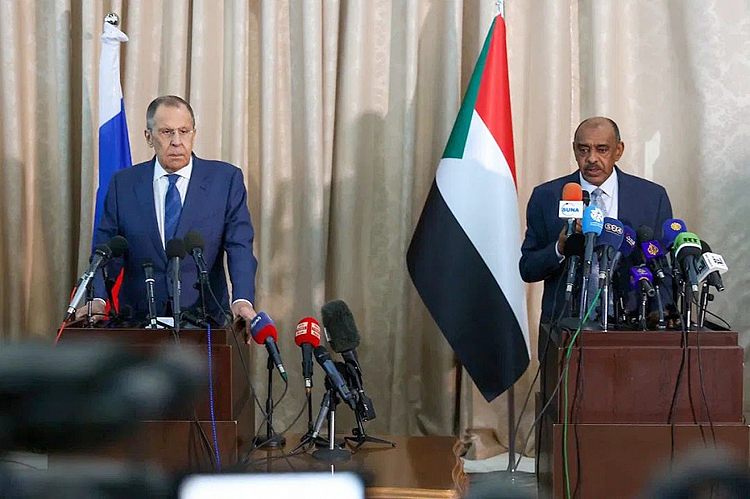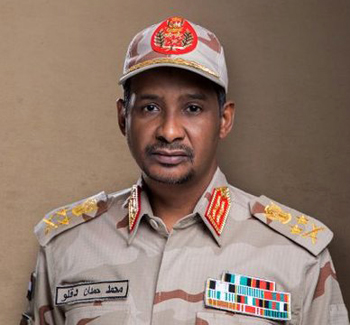INDIAN ARMED FORCES CHIEFS ON OUR RELENTLESS AND FOCUSED PUBLISHING EFFORTS

The insightful articles, inspiring narrations and analytical perspectives presented by the Editorial Team, establish an alluring connect with the reader. My compliments and best wishes to SP Guide Publications.

"Over the past 60 years, the growth of SP Guide Publications has mirrored the rising stature of Indian Navy. Its well-researched and informative magazines on Defence and Aerospace sector have served to shape an educated opinion of our military personnel, policy makers and the public alike. I wish SP's Publication team continued success, fair winds and following seas in all future endeavour!"

Since, its inception in 1964, SP Guide Publications has consistently demonstrated commitment to high-quality journalism in the aerospace and defence sectors, earning a well-deserved reputation as Asia's largest media house in this domain. I wish SP Guide Publications continued success in its pursuit of excellence.
- Operation Sindoor: Resolute yet Restrained
- India’s Operation Sindoor Sends a Clear Message to Terror and the World – ‘ZERO TOLERANCE’
- Japan and India set forth a defence cooperation consultancy framework, talks on tank and jet engines
- Terrorist Attack in Pahalgam in Kashmir: Unfolding a long surgical war against PAK
- Lt General Pratik Sharma takes over Command of Indian Army's Northern Command
Salvaging Sudan
Even before the recent clashes, Sudan was facing social and political unrest with a struggling economy
 |
The Author is former Chief of Staff of a frontline Corps in the North East and a former helicopter pilot. He earlier headed the China & neighbourhood desk at the Defence Intelligence Agency. He retired in July 2020 and held the appointment of Addl DG Information Systems at Army HQ. |

Looking up at the majestic headquarters building of my Alma Mater, the National Defence Academy nestling beside the Khadakwasla Lake, a casual visitor will be both impressed as well as perplexed. Impressed that the stately three storied imposing structure befits the distinction that the iconic first tri-service military training institute of the world ordains. Perplexed that the administrative headquarters of the NDA was named the Sudan Block, after an African nation generally associated with interminable civil wars and massacres.
Well, the association dates back more than eight decades, much before both the countries gained independence from colonial rule. In 1941, the then Viceroy of India received a gift of £100,000 from a grateful Sudanese Government towards building a war memorial in recognition of the sacrifices of Indian troops in the liberation of Sudan in the East African campaign during World War II. The Indian Army decided to use these funds to partly cover the cost of construction of the NDA. The building was inaugurated by then Ambassador of Sudan to India, Rahmatullah Abdulla, on May 30, 1959. It was a relationship founded on valour of the Indian soldiers who had fought shoulder to shoulder alongside the Sudanese. That special enduring relationship maybe one of the reasons why while Sudan is up in flames since mid-April, the Indian government has been successful in negotiating with both the warring parties and evacuate her citizens to safety in a daring operation codenamed ‘Kaveri’.
A central cause of tension since the 2019 uprising has been the civilian demand for oversight of the military and integration of the RSF into the regular armed forces
An intense power struggle has pitted the Sudanese Armed Forces (SAF), led by General Abdel Fattah al-Burhan, the country’s de facto ruler, against the paramilitaries of the Rapid Support Forces (RSF), a collection of militias, led by former warlord General Mohamed Hamdan Dagalo, known as Hemedti. Hemedti has huge wealth derived from the export of gold from illegal mines, and commands tens of thousands of battle-hardened veterans.

The power struggle has its roots in the years before a 2019 uprising that ousted the long serving dictatorial ruler Omar al-Bashir, who built up formidable security forces that he deliberately set against one another. The RSF was founded by Bashir to crush a rebellion in Darfur that began more than 20 years ago due to the political and economic marginalisation of the local people by Sudan’s central government. The RSF was also known by the name of Janjaweed, which became associated with widespread atrocities. In 2013, Bashir transformed the Janjaweed into a semi-organised paramilitary force and gave their leaders military ranks before deploying them to crush a rebellion in South Darfur and then dispatching many to fight in the war in Yemen, and later Libya.
Hemedti and Burhan cooperated to oust Bashir in 2019. A central cause of tension since the 2019 uprising has been the civilian demand for oversight of the military and integration of the RSF into the regular armed forces under which Hemedti is seeking parity status with Burhan.
African continent has a tragic history that continues to unfold daily in myriad strife, military coups, and tribal and sectarian genocides
Sudan is not an isolated case in Africa. The continent accounts for roughly half the coups which have taken place in the world since 1950, numbering 214 by current count of which 106 were successful. There were two takeovers in Burkina Faso last year as well as failed coup attempts in Guinea Bissau, The Gambia and the island nation of Sao Tome and Principe. In 2021, there were six coup attempts in Africa, four of them successful.

The resource rich but perilously poor African continent has a tragic history that continues to unfold daily in myriad strife, military coups, and tribal and sectarian genocides resulting in mass migration in millions. Tens of thousands make desperate journey on leaky rickety boats across the Mediterranean to safety and prospects of a better life in Europe, mostly washing up on the shores of an unwelcoming Italy. It would appear that little has changed since early 1876 that marks the ‘Scramble for Africa’, the rushed imperial conquest of the continent by the major powers of Europe which began with King Leopold II of Belgium. Within forty years, by 1914 Great Britain dominated the breadth of the African continent from Egypt to South Africa, as well as Nigeria and the Gold Coast; the French occupied vast expanses of west Africa; the Germans boasted control over modern-day Tanzania and Namibia; the Portuguese exerted full control over Angola and Mozambique. Conquest was relatively easy for the European states, bands of just a few hundred men and barely a handful of machine guns could obliterate thousands of Africans in mere hours.
Russian Foreign Minister Lavrov and General Burhan confirmed the Russian naval base deal despite US Secretary of State Blinken’s dire warnings
Then as countries gained independence post World War II and local leaders began to assert their nationhood, the receding colonial powers used all means at their disposal to retain influence over these leaders in order to protect their commercial interests in minerals like gold, diamond, copper and oil. State actors in the guise of military training teams and non-state mercenaries were unleashed to control illegal mining and quarries, ravaging the landscapes and draining wealth from the continent. The swift military action by Britain and France, following Egyptian President Nasser’s nationalisation of the Suez Canal in July 1956, is a case in point. Soon that was replaced by conflicts that spread across the continent as the west and the Soviet Union tussled for influence in newly or soon-to-be independent African nations: a proxy Cold War described as a “second scramble for Africa”.
Its over 30 years since the cold war ended. But Africa still waits for its turn at peace and prosperity. Big power rivalry and corporate greed continue to wreak havoc in the continent. In case of Sudan, Western powers feared the potential for a Russian base on the Red Sea, to which Sudanese military leaders had expressed openness. On February 12, Russian Foreign Minister Lavrov and General Burhan confirmed the Russian naval base deal despite US Secretary of State Blinken’s dire warnings in November 2022. So, the same Under Secretary of State Victoria Nuland who is also a key player in the Ukraine quagmire since 2014 visited Sudan on March 9, 2023 to ‘discuss democracy’. So, the world is now witnessing democracy being discussed, pushing millions from their homes as gunfire rages across towns and villages, the impoverished country up in flames. Salvaging Sudan from its current abyss will require astute global statesmanship that is prepared to cast aside savage corporate interests.





